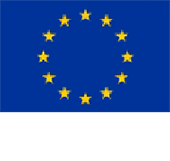NTUA is the oldest and most prestigious educational institute of Greece in the field of Technology (founded in 1836). NTUA attracts funding for research from National and European sources that place it on the top of all Greek academic and research institutions. Research is carried out in about 100 laboratories belonging to the various departments and sections of the institution. NTUA employs about 1800 researchers in more than 700 R&D projects supported by National and European Union funds. NTUA will participate with the Sanitary Engineering Laboratory (SEL), Department of Water Resources and Environment, School of Civil Engineering.
SEL has been engaged, since 1981 in extensive research in the fields of wastewater and sludge treatment, disposal and reuse, water pollution control, water resources management, water quality & process modelling, drinking water treatment, treatment, disposal and reuse of solid wastes, industrial wastes management and environmental impact assessment. Sanitary Engineering laboratory is accredited by Hellenic Accreditation System (E.SY.D) according to ISO 17025 for the determination of various pollutants (conventional and toxic) in water, wastewater and sludge samples.




